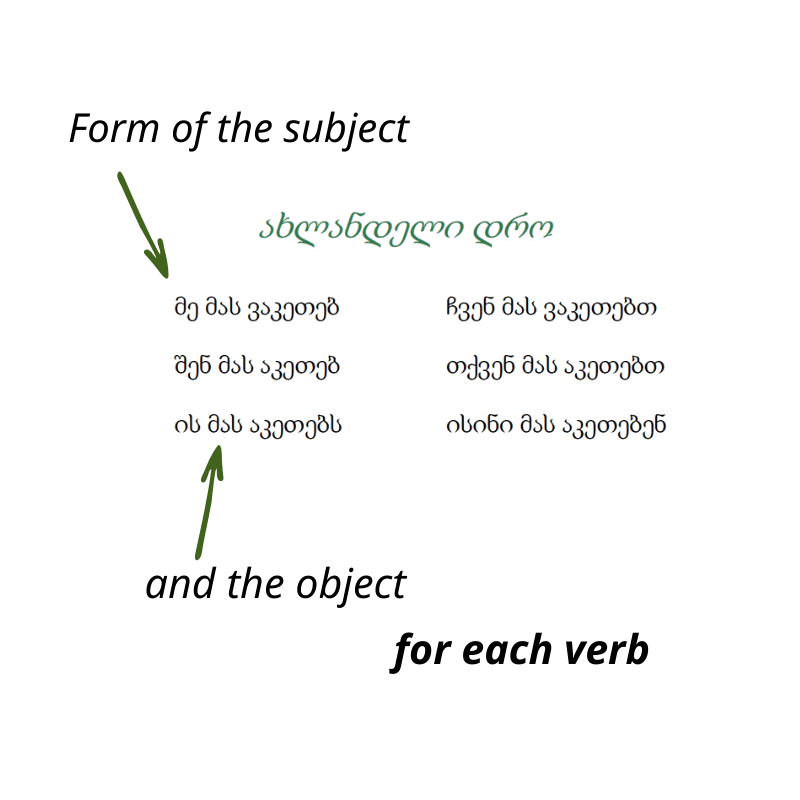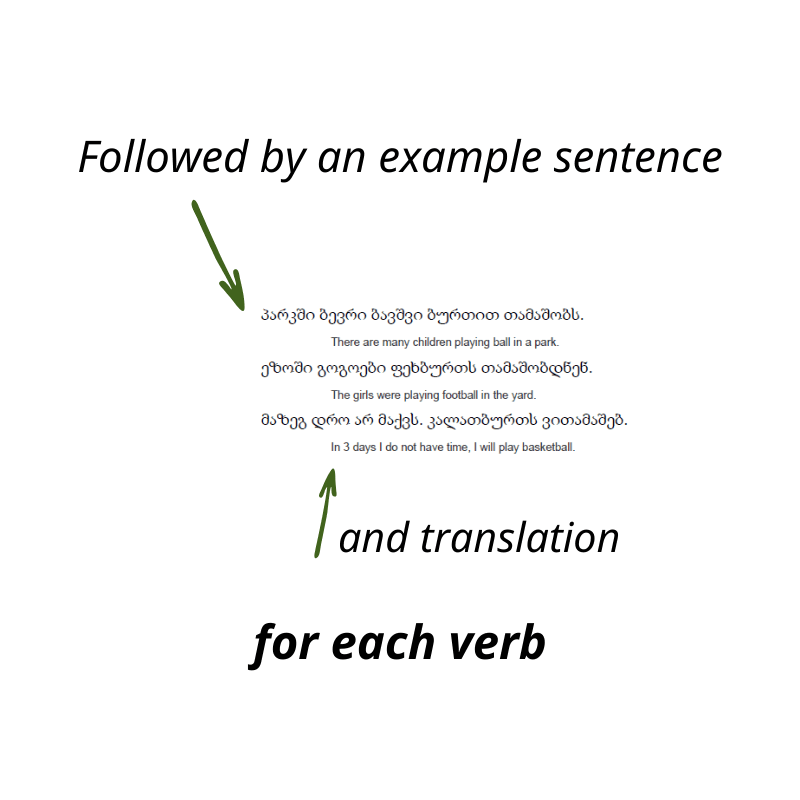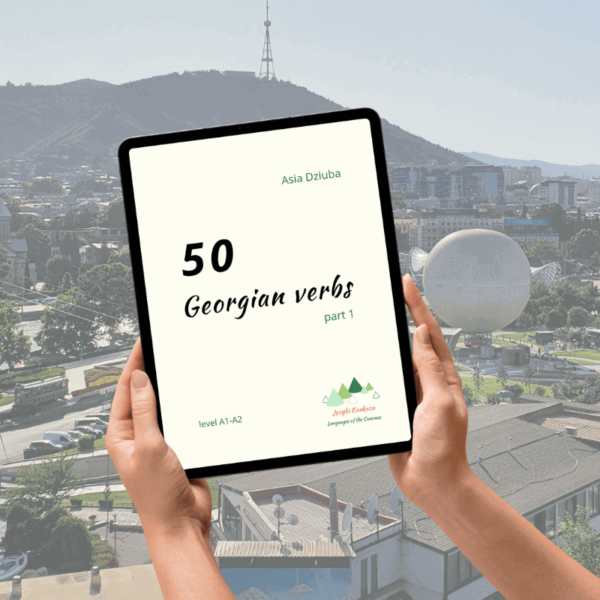What do you get when buying 50 Georgian verbs?
In this book, you’ll find the 50 most commonly taught and used Georgian verbs at the beginners stages of learning
All verbs are presented in a clear and straightforward way. So if you have our book and know the basics of Georgian grammar, finding the correct verb form and using it on your own is nice and easy.
Even the book’s structure is designed to make learning the Georgian verbs as effortless as possible. The verbs are not listed alphabetically! Instead, they’re grouped by similar conjugation patterns, making it easier and faster to learn them.
What is inside the e-book with 50 Georgian verbs?
Each verb is conjugated by person in 5 forms (called screeves): present, imperfect, future, aorist, and optative. These forms form the foundation for learning Georgian at a basic and pre-intermediate level.
For each of the 5 forms, you’ll find example sentences with translations. This way, you’ll clearly see how each form is used in context — no guessing needed!
All key sentence parts are declined so put in a word form that should be used in the particular tense and verb type. These forms are something rarely found in other Georgian learning materials and they’re crucial to understanding how the whole sentence structure changes depending on the verb.


Each verb is spread over two pages, clearly laid out with space for your own notes, comments, or reflections.
Before the section with conjugation of Georgian verbs, there’s a short and simple introduction. We don’t bombard you with all the Georgian grammar or linguistic info. We focus on what you can actually use and remember at level A1-A2.
Want to check which 50 Georgian verbs we put in Patr 1 of our e-book? Here you'll find the list of 50 Georgian verbs from this part.
Whom is this book for?
If you’re just starting to learn the Georgian language, you already know that verbs and their conjugations are crucial.
If you want to learn them in a systematic, simple way, now’s the perfect time to get familiar with our e-book “50 Georgian Verbs”. It will be your trusted resource to verify any form while learning Georgian.
If you feel that Georgian language is difficult, illogical, and chaotic, it means you haven’t learned to conjugate Georgian verbs with us yet.
That’s precisely why this book is so useful — it finally helps you to organize verb conjugations. You’ll have all the verified basic forms in one place so you can analyze and check them, learning proper Georgian from the start.
Who prepared '50 Georgian verbs. Part 1'?
Asia Dziuba — the author. Founder of Języki Kaukazu - Languages of the Caucasus. She has been teaching Georgian for over 10 years through group courses, individual classes, and self-paced courses. After some time, she started creating her own materials, which received very positive reviews. The idea for a verb conjugation handbook has been her dream since she began learning Georgian in 2008 during her studies at Ilia Chavchavadze University in Tbilisi.
Ketevan Kuljanishvili — editor and proofreader. A Georgian language teacher with a degree in the field and a philologist. She has extensive experience teaching Georgian to foreigners and members of minority communities living in Georgia. She has also participated in and proofread numerous projects developing Georgian language learning materials. She teaches both individual and group classes.

